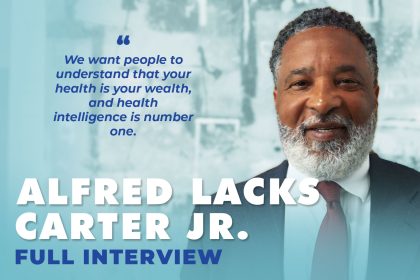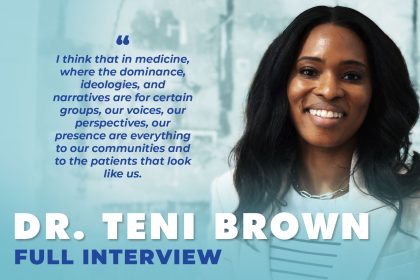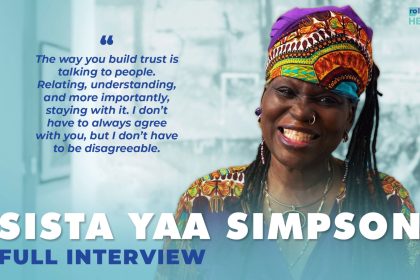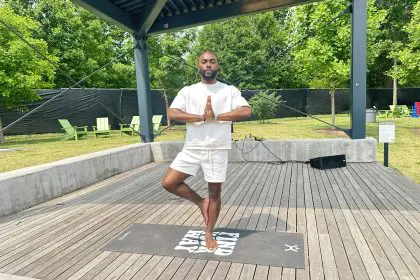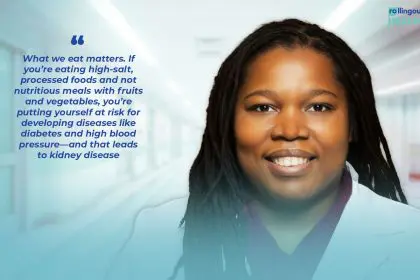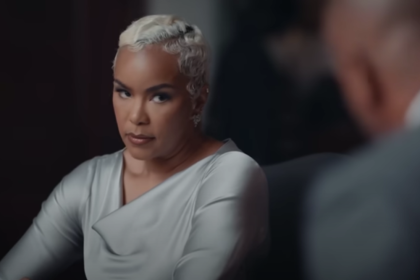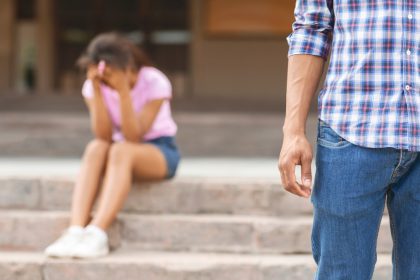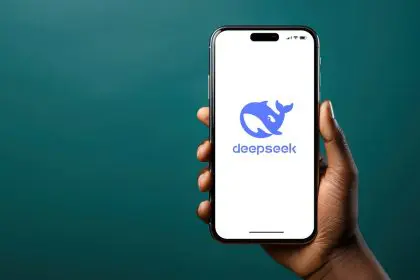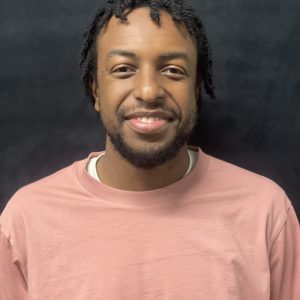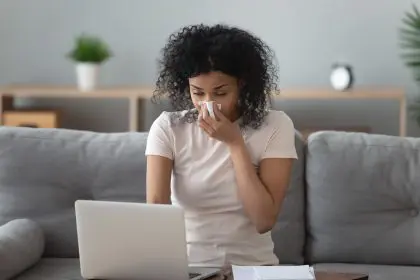Chezik Tsunoda’s entire life changed in 2018.
That was the year her 3-year-old son, Yori, drowned. The filmmaker used her pain to direct the 2022 production Drowning in Silence. For her efforts in raising awareness of water safety, she received the Diversity Equity and Inclusion Award at the 2022 National Water Safety Conference. She also pushed for Washington State HB1750 (Yori’s Law), which designated May 15 as the Day of Water Safety Awareness.
Tsunoda recently stopped by rolling out to discuss water safety more in-depth.
What are three myths about pool safety?
There are so many myths. I think the biggest one media has given us is that drowning is loud, that they’re splashing, they’re screaming.
It is incredibly silent.
I think another myth happens to be that it’s seconds. It’s something that happens quickly, it’s something that happens quietly and it’s really challenging as we look into it.
I think also, other people think that their swimming ability is much more often than it is. We really need to arm ourselves and know before we go.
How can we approach family conversations about swimming and pool safety?
I think it’s really important we tell our children, “Hey. Look both ways before you cross the street. Always buckle before you get in the car.” Those are things we do often. It’s something that’s in our conversation often, but during the summer months, and even during potential vacations, it’s really important for us to talk with our children to make sure they ask for permission before they even go in the water. That’s just something so simple to know.
I honestly think, even as adults, we should tell someone, “Hey, we’re getting ready to go to the lake.” Just in case something happens.
Also, we should really make sure our children in particular know how to swim. It’s something that has, for generations, not been a part of our regular living and exercise, and it’s really important we get out there and teach our children how to swim.
Finally, it is taking a pledge of being safe around the water as a family understanding this is something that is fun. It’s a great place to socialize, but we need to make sure that we’re being safe around there.
Why should children ask for permission to get in the water?
It’s simple. I think it’s just like before you go outside to say, “Hey, this is what I’m going to do.”
Even more so, it’s imperative because as a parent or an adult or guardians, we need to be watching our children in the water. I can tell you unfortunate stories of, not only small children but good swimmers. Swim team swimmers that have drowned. Tragedies happen, unfortunately in the water, whether it’s a rip tide or just an unfortunate kind of freak accident.
It’s really important we ask and make sure our children start asking for permission so that we know, “OK. I’m going to go out there and have awareness of you, or I’m going to have someone else.” It’s really imperative to have a water watcher when our families are swimming.
What should we know about drugs, alcohol and pool safety?
I like to think of it just like driving, honestly. We have a designated driver that when we are out and want to get home safely, we designate someone that is going to be that sober person that if an emergency does arise, knows exactly if they can just get us home safely, and we need to do that same thing around water.
It impairs our detection even of a drowning happening. Not only that, we need someone that’s going to be able to call 911 to give CPR and to just be of the right mind to be able to make quick decisions. When I tell you every second counts if there is a drowning incident, every second counts. Having someone there who can make a phone call that can do CPR because [alcohol or drugs] impairs judgment.
What are some things pool owners should know?
It is really imperative to have some sort of fencing or blocking when a pool is not in use because so many times people wander out and we just spoke about being impaired. That’s even a possibility that someone stumbles and falls.
It’s really important we have fencing around our pool, but 63% of fatal child drownings happen in home pools. That is a startling fact and statistic that goes to show we need to educate our children about being around a pool, asking for permission, and making sure we have something that is blocking, whether it is a net, an alarm, or anything.
Then also, there has been a law that has discussed suctions and drains in public schools. We need to make sure that we have the same safety in home pools because that is another way pools can be dangerous.
What do people who own pools are not understanding?
I think there are small things. For example, leaving pool toys in a pool that are attractive to a child. I have a couple of little ones myself, and they are determined to do whatever they’re going to do. It’s really important to clear those pool toys out of the pool and make sure there’s nothing that is intriguing for a child to get in.
Again, it is being responsible. I even learned a statistic recently, but a lot of these drownings happen when it’s not swim time. You think a child is napping, but also neighbor’s children go into a pool area, so it really is important to have conversations with your family and with your neighbors.
If you have those alarms and fences installed, you’re taking the steps and applying layers of safety around the body of water. That’s a pool, and we’re not even talking about lakes. That’s why if we’re swimming, and our children know how to swim, how to have skills, but if they are drowning, they know what to do. These are all of the things that we need to educate ourselves on because there are so many ways [a tragedy can happen]. It’s unfortunate.
What are people underestimating when they hop in the water?
It’s fun. It’s a way to cool down. It’s something we do recreationally. If I’m being just fully transparent, I’ve had a child that has drowned, and it’s not something that I thought would happen to me.
In general, we don’t think it’s going to happen to us. It’s incredibly painful to discuss. We don’t hear about it unless it’s a celebrity or an athlete’s child drowns, we don’t hear about all of the children that drown.
Then beyond that, all the children that have emergency room visits, and are potentially impaired. I think it’s a lack of awareness in our community, in particular. We haven’t had the access and the ability to be around water like that to even understand the dangers. We’re excited just to be there because we weren’t allowed to be there.
What are the messages our community leaders need to be sending about this?
I don’t necessarily have the answers. What I suggest, and what I think would be beautiful is that we can all get this messaging within education. That it’s something that is incorporated into our curriculum so that every child is touched. You know, there’s only a 13% chance you’re going to learn how to swim if your parent doesn’t know how to swim. Thirteen percent chance. So consider that my grandma didn’t know how to swim.
The next generation’s coming, and it’s still impacting our community. I think education would be huge and having a curriculum, I honestly think if we could get athletes involved, just to say swimming is more than a sport.
We’re excited about celebrities and athletes, and if we could have someone stepping forward that understands the importance of this, and realizing this is a life-saving skill, that yes, it’s fun. And yes, it’s it is a sport, but it can truly save lives.
Where should we be in regard to learning CPR?
Granted, it’s beautiful and wonderful for swimming, but across the board, you can save a life with CPR. If someone you know falls over at a restaurant, you can be that person. There are lessons everywhere. It’s very accessible.
If you call your local fire station, your local Red Cross, or even Y.M.C.A. these are all facilities and resources that have classes where we can learn CPR, and it’s tricky because if there is an infant, there’s child CPR. There’s adult CPR, so it’s really important you have access and the ability to know, I would say at least two out of the three most-related people to you and your family.
That’s just something we should know. In fact, speaking of celebrities, Swizz Beatz literally just posted on his social media about the importance of CPR. It’s fortunate that again, people who have that voice, are sharing these tips and tools that will help save our community.
What should we know about the depths of water?
In general, my go-to thing is to know before you go as much as you can, educate yourself. If you are going into a pool space, understanding how deep it is, you should never jump in, particularly, a lake or an open body of water. You should walk in so that you get a sense of where the drop-off happens because oftentimes that drop-off is quick and you lose your footing. Quickly, quietly, tragedy can happen.
It is those little things of understanding your swim, capability, understanding your child’s swim capability. I think oftentimes parents think, “Oh, my kid has had a couple of swim lessons. They can swim.”
We need to make sure we’re aware of all of our limitations.
How important is obeying the signs?
That’s why we stop at stop signs. We might get hit so very similarly with water. If there is something, it’s there for a reason, especially when we talk about rip tides in open water. Those things are not to be played with, and it’s a force of nature we can’t control.
As much as you want to read the signs, it’s still not foolproof. As far as drowning prevention, you still are going to have to watch your family, especially when it says no lifeguards. Oftentimes it will say, “There are no lifeguards present. Swim at your own risk.” Unfortunately, I and many folks know that risk is often deadly.
I don’t want to scare people.
Swimming is beautiful. It’s fun. It’s amazing. It really is just about proceeding with caution and education and educating yourself and your families on how to be safe in and around water.
Obey the signs. Obey the Lifeguards. I even like to say, knowing before you go. Are there Lifeguards? Are there life jackets there? Life jackets are another thing. We buckle our seatbelts every time we get in a car. I wish that we put on a life jacket every time we got in that open water because it truly does make a big difference.
What are your final words for educating everyone about water safety?
My final words are to know before you go. Make sure you are educated and educating your family about all of the positives and dangers of being in and around water. Also, drowning is 100% preventable. We’re not waiting on doctors. We’re not waiting on cures. We have everything we need to be out there and safe and enjoying our water spaces and learn to swim.
The last thing is always to have a water watcher. Whether there are children or adults, have someone that is focused on watching the water and looking for those signs because I’m telling you, months in, it’s quiet there. It’s not, “Help!” You don’t hear it at all. That’s why those eyes on that water are critical.
For more information on how to “pool safely,” visit poolsafely.gov.

